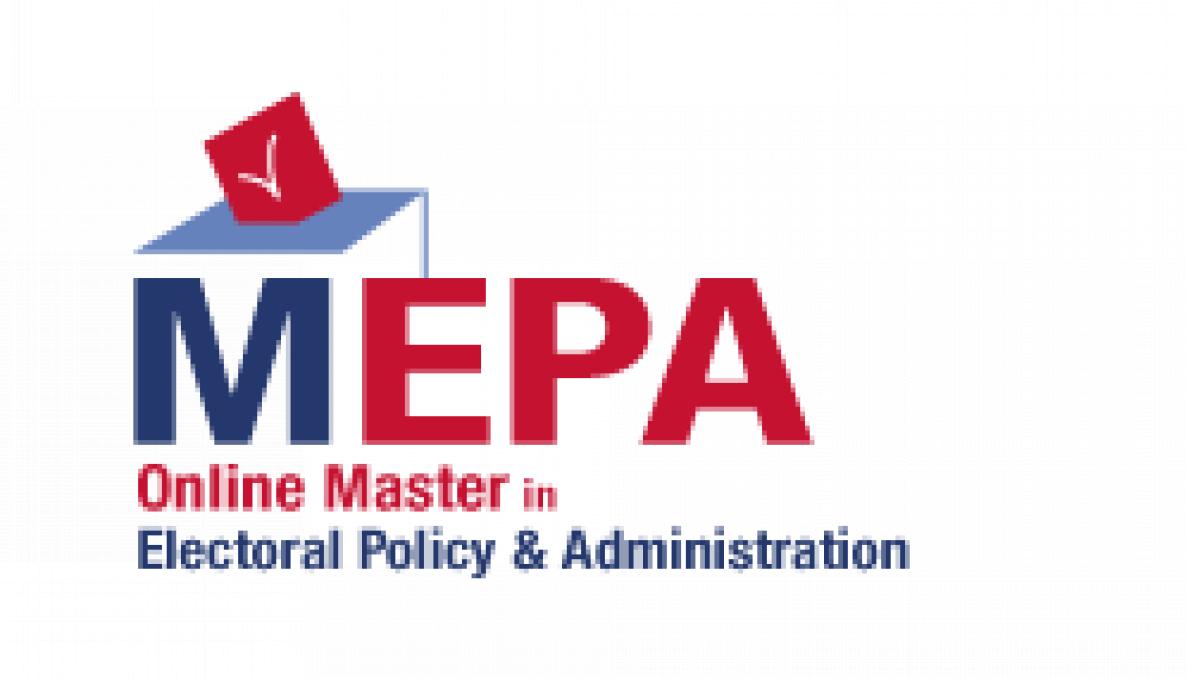Online Master Programme and Individual Modules "Electoral Policy and Administration"

Location: online, the optional residential phase will be in Pisa, Italy
Date: possible starting dates: 1 October 2016, 15 January 2017, 1 April 2017. The average duration of the Master Programme is one year
CFU: 67; 2 to 4 for individual modules
Training hours: 480 hours of online lectures, 20 to 40 hours for individual modules.
Activity: online lectures (480 hours); optional internship (min. 300 hours); optional residential phase (max. 80 hours)
Participants: there is not a maximum number of participants
Language: English
Tuition fee: 10.000 EUR for the Master Programme, 850 EUR for individual modules. Starting from the second module, a 10% discount on the fee of the second and third module is applied and a 15% discount is applied from the fourth module onwards
Application deadline: interested students can apply anytime and they will be informed about the result within eight weeks
Final degree: First level Master Degree; Certificate of Completion for individual modules.
Scholarship and Financial Assistance: Everyone interested is highly welcome to apply. UNITAR may award partial scholarships to talented students in need of financial aid based on merit, distinctive competences and academic excellence. Scholarships are awarded just for the Master Programme, not for individual modules and are subjected to availability of funds. The Scuola and the Programme Partners will provide further assistance in the search for funding opportunities.
How to apply
Applicants will need to upload in the online application system the following documents:
- CV/ résumé;
- Transcript of all records of the BA degree (or equivalent);
- Copy of passport or ID valid document;
- Copy of last payslip if a scholarship is requested.
Activities
Course Description
The Online Master Programme is based on the 2014 International IDEA designed “Model Curriculum – Master of Electoral Policy and Administration”. Instruction is delivered online by professionals from all over the world with extensive experience in the field of electoral policy and practice. Candidates must meet the following minimum requirements: (1) Three-year (at least) university degree in a relevant field, combined with some working experience (at least six months) in the field of electoral policy and administration or related areas. (2) Fluency in English – at least at level B2 (please refer to: CEFR for Languages, CoE, www.coe.int/lang-CEFR).
Target Group
MEPA targets mid/upper level professionals who want to acquire the specific knowledge and skills to work as election administrators, and/or to work as a part of Election Management Bodies (EMBs). You should apply if you are looking for a professionalizing online graduate study programme or individual modules on electoral policy and practice offered by leading institutions in this field. If your training needs include practical skills, besides relevant theoretical knowledge, to fully understand the work as election administrators, or to work at Election Management Bodies (EMBs) this is the relevant Master for you. Candidates will receive high-level training from a faculty of internationally reputed experts, scholars and practitioners.
Training Objectives and Modules
This Programme has three fundamental objectives: 1) To offer advanced preparation to those individuals interested in pursuing a career as professional in the field of Electoral Policy and Administration and those already working in this field; 2) To respond to a global, structural demand for qualified electoral administrators; 3) To contribute to reduce the gender gap in electoral administration by contributing to strengthen women’s role in this sector, including in senior positions.
Methodology
The lectures covered by the Master Programme will adopt an intercultural perspective and a cross-disciplinary approach. Teaching methodologies will rely on the analysis of real situations and concrete examples, and will include a high number of drills, simulations and/or role-plays.
Programme
The Model Curriculum is composed of the following topics divided in 18 modules:
- Elections and Voting as Instruments of Governance
- Electoral Legal and Regulatory Frameworks
- Electoral Management Bodies (EMBs)
- Electoral Systems and Managing Representation
- Understanding and Managing Boundary Delimitation
- Political Parties, Campaigns, and Political Finance
- Electoral Planning and Budgeting
- Voter Registration and Identification Systems
- Electoral Operations
- Marginalized Electorates and Special Voting Programs
- Elections and Technology
- Civic and Voter Education
- Media and Elections
- Electoral Integrity and Malpractice
- Electoral Security and Conflict Prevention
- Electoral Justice Systems
- Electoral Observation, Evaluation, and Validation
- Policy Advice and Electoral Reform
